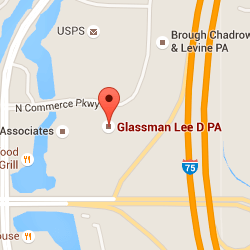Blog
South Florida Bracing For Homeowners Insurance Rate Hike in 2021

Homeowners insurance rates are on the rise in South Florida, giving residents quite the sticker shock when they open the mail. South Florida Sun Sentinel reports some policies are increasing by as much as 30% to 40%, meaning policyholders would pay up to $1,000 more for their premium in 2021 than they did in 2020.
Because of the amount of claims filed in Florida each year, some insurance companies won’t even sell new policies in certain parts of the state, such as Miami-Dade and Broward counties and Orlando and Tampa metro areas. Nationwide, fire and lightning result in the costliest of insurance claims, followed by bodily injury and property damage, wind and hail, and water damage and freezing, respectively, according to Insurance Services Office Inc. (ISO). However, homeowners file claims significantly more frequently for damage caused by wind and hail, as well as water and freezing.
If you live in an older home without windstorm protection and your current insurance company is willing to renew your policy, re-sign regardless of price. It is unlikely you’ll find a better deal with another company if another company would even take you on. But, there is no harm in asking your agent to shop around. What one insurance company views as a high risk, another insurer may not.
Some insurance companies won’t grant a new policy to a customer whose roof is greater than 10 years old. When looking for a new home, keep this in mind. You can also invest in impact-resistant windows and doors or storm shutters, although this is still not a guarantee you’ll avoid a rate increase or find it any easier to get a new policy. It will, however, increase your property value.
Because people are having a difficult time getting approved for a new policy or affording the new quoted rate of an existing policy, more and more Florida homeowners are turning to the state-run insurer Citizens Property Insurance Co. This isn’t the coverage of first choice because it caps personal liability coverage at $100,000, mold coverage at $10,000, and excludes animal liability, sump pump overflows, and hurricane-related damage to screen enclosures. It is better than having no coverage at all, but it’s not designed to be a desirable option.
Homeowners qualify to take out a policy with Citizens if they aren’t able to get a policy from a private-market company or if the only private-market policy they can get costs 15%-plus more than what the Citizens policy would be. Citizens CEO Barry Gilway said that they are adding 2,500 to 3,000 new policies weekly, 85% being from Palm Beach, Broward, and Miami-Dade counties. By the end of the year, he expects to sign 625,000 policies.
Renters are also impacted because landlords are facing insurance hikes on the property. This trickles down to the tenants with rent increases at time of renewal.
To make homeowners and renters insurance more affordable, consider relocating north of Palm Beach County or to Southwest Florida. Insurance costs are about 25% less expensive in Fort Myers and Port Charlotte. Some reasons South Florida is so expensive is because insurance companies see it as a greater risk for hurricanes, residents in the region tend to file more claims, and contractors charge more to make repairs.
Florida is also susceptible to sinkholes, according to the U.S. Geological Survey. Homeowners insurance policies in Florida are required to offer sinkhole coverage. Catastrophic ground cover collapse coverage is mandatory, but comprehensive sinkhole coverage is optional.
If you need legal assistance filing a homeowners insurance claim or finding the right policy for you, please call The Glassman Legal Group at (954) 915-8800.
